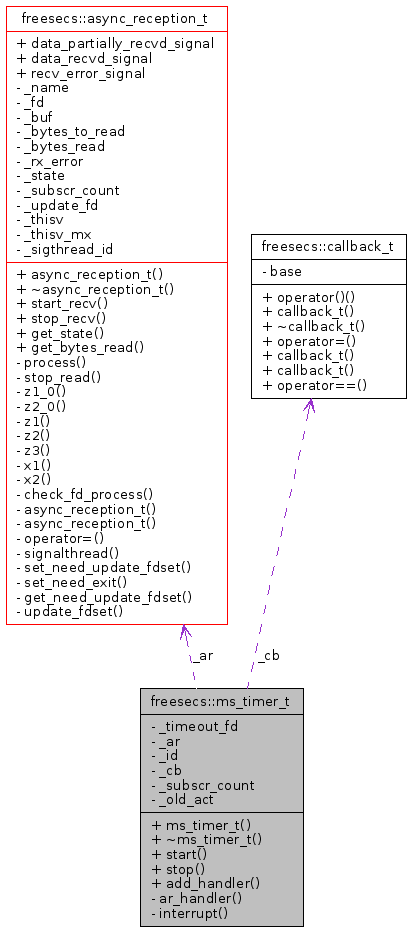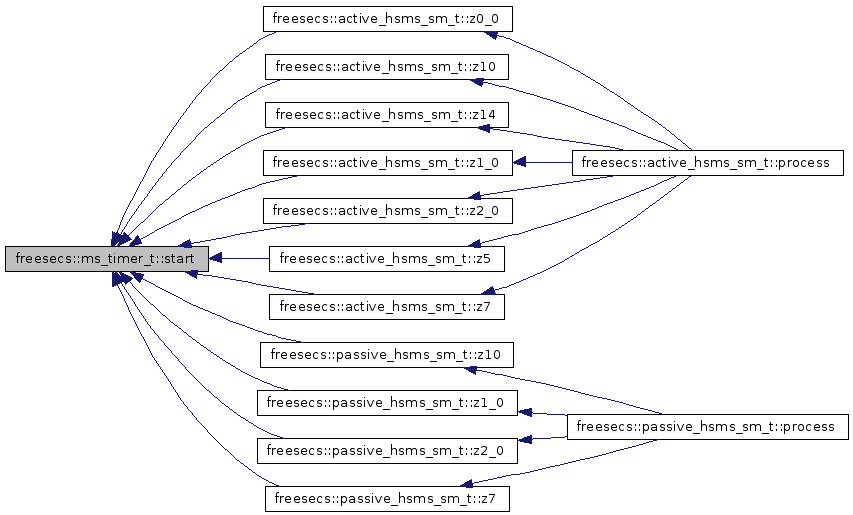
#include <timer.h>
Collaboration diagram for freesecs::ms_timer_t:

Public Member Functions | |
| ms_timer_t () | |
| timer ctor Throws an exception if timer creation unsuccessfull | |
| ~ms_timer_t () | |
| int | start (unsigned long timeout_ms) |
| starts a timer | |
| int | stop () |
| stops a timer | |
| template<class T> | |
| void | add_handler (T *p_class, int(T::*p_func)()) |
| adds a handler for timer event processing | |
Definition at line 39 of file timer.h.
| int ms_timer_t::start | ( | unsigned long | timeout_ms | ) |
starts a timer
| timeout_ms | Timeout in milliseconds |
Definition at line 105 of file timer.cpp.
References freesecs::async_reception_t::start_recv().
Referenced by freesecs::active_hsms_sm_t::z0_0(), freesecs::active_hsms_sm_t::z10(), freesecs::passive_hsms_sm_t::z10(), freesecs::active_hsms_sm_t::z14(), freesecs::active_hsms_sm_t::z1_0(), freesecs::passive_hsms_sm_t::z1_0(), freesecs::active_hsms_sm_t::z2_0(), freesecs::passive_hsms_sm_t::z2_0(), freesecs::active_hsms_sm_t::z5(), freesecs::active_hsms_sm_t::z7(), and freesecs::passive_hsms_sm_t::z7().
Here is the call graph for this function:

Here is the caller graph for this function:

 1.5.1
1.5.1